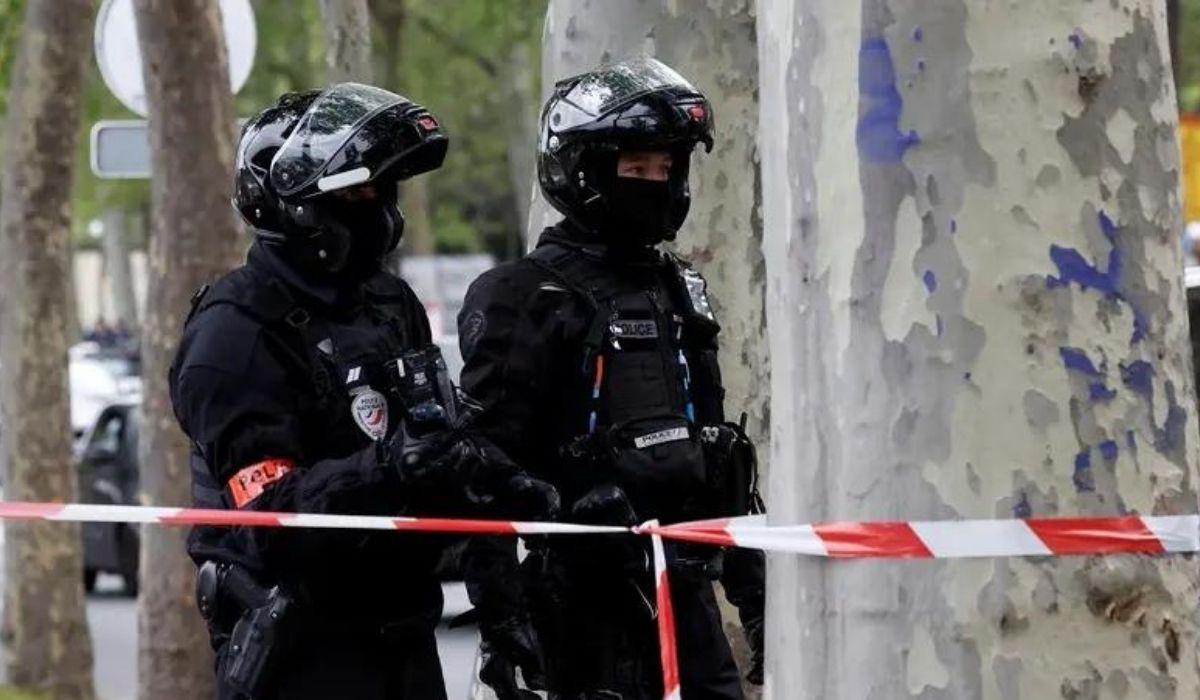Coach and horses through the Constitution
The AKP has taken steps to preclude the measures in the bill that will be debated today in the Parliamentary Justice Commission and will effectively extend the state of emergency for a further three years from being annulled by the Constitutional Court. However, many of the measures flagrantly deviate from the Constitution. The wide powers given to provisional governors and the cancellation of pas
 The AKP has taken a raft of steps to preclude the possibility of the measures in the bill that will be debated today in the Parliamentary Justice Commission and will effectively extend the state of emergency for a further three years and make it permanent being annulled by the Constitutional Court. However, with many measures flagrantly deviating from the Constitution, provisions have been proposed in some measures from the arrest period to restrictions on the rights of travel and communications that are contrary to the spirit and letter of the Constitution, circumventing it through muddying concepts. The AKP’s bill that will make the state of emergency permanent will be debated today in the Parliamentary Justice Commission. The bill is expected to come onto the agenda of the Parliamentary General Assembly on Monday and be enacted during the week. To prevent the measures imposing restrictions on meetings and protest marches from being annulled, it has incorporated wording from Constitutional Court rulings into the bill. Even though it is stressed that there is no breach of the Constitution in the accompanying written arguments, there are noticeable deviations in many measures contained in the bill. Here are some of them:
The AKP has taken a raft of steps to preclude the possibility of the measures in the bill that will be debated today in the Parliamentary Justice Commission and will effectively extend the state of emergency for a further three years and make it permanent being annulled by the Constitutional Court. However, with many measures flagrantly deviating from the Constitution, provisions have been proposed in some measures from the arrest period to restrictions on the rights of travel and communications that are contrary to the spirit and letter of the Constitution, circumventing it through muddying concepts. The AKP’s bill that will make the state of emergency permanent will be debated today in the Parliamentary Justice Commission. The bill is expected to come onto the agenda of the Parliamentary General Assembly on Monday and be enacted during the week. To prevent the measures imposing restrictions on meetings and protest marches from being annulled, it has incorporated wording from Constitutional Court rulings into the bill. Even though it is stressed that there is no breach of the Constitution in the accompanying written arguments, there are noticeable deviations in many measures contained in the bill. Here are some of them:
-The criterion of “not impeding daily life” for the right of demonstration: Appended to the criterion of “not disturbing general order” in determining the place and route for the holding of meetings and protest marches is the criterion that they “will not excessively and intolerably impede citizens’ daily life.” The criterion of not impeding daily life, which the AKP introduced in a law that was described as a “democratisation package” in 2014 was annulled last year by the Constitutional Court, deeming it contrary to the Constitution. In the reasons for the annulment, it was stressed that meetings and protest marches inevitably impede the daily lives of others to a degree and, to enable the closure of a certain place to meetings and protest marches to be justified, daily life needed to be impeded “to an excessive and intolerable degree.” The AKP has adopted verbatim the wording from the Constitutional Court’s reasons and made it into a criterion for restricting meetings and protest marches.
-Nightfall in place of sunset: The provision has been proposed in the bill, “Open-air meetings and marches may be held such that they disperse at nightfall, and meetings in enclosed places by 24.00.” The provision on the same matter placed in the democratisation package issued in 2012, “Open-air meetings and marches may be held such that they disperse before sunset” was annulled last year by the Constitutional Court, deeming it contrary to the Constitution. In the reasons for the annulment, with it stressed that the restriction of until sunset amounted to an encroachment on the right to hold meetings and protest marches, it was said, “Even if it may appear proportionate to ban meetings that will hinder the repose of other people in terms of the number of participants and their manner and especially those that continue late into the night, the banning of meetings that do not disturb others to an extreme degree and do not pose a serious threat to public order from continuing after sunset may upset to the detriment of the right to hold meetings and protest marches the equitable balance that must be struck between rights.” Having taken account of the reason for annulment, the AKP has appended the wording to the bill, “The time at which meetings and protest marches are to disperse may be extended until no later than 24.00 at the decision of the most senior civil service administrator at the location, on condition that the meeting and march does not excessively and intolerably impede citizens’ peaceful and calm repose and does not disturb the public order and general peace.”
-Basis for the arrest time sought: The Constitution contains the provision that the arrest time with individual crimes is 48 hours and no more than four days with jointly-committed crimes and nobody may be deprived of their liberty once these periods have expired without a judge’s order. Despite this constitutional provision, it is proposed in the bill, for a three-year period, for the arrest period with individual crimes to be extended up to six days and up to twelve days with jointly-committed crimes by order of a judge. In the written arguments for the article in question, the provision, “Nobody may be deprived of their liberty once these periods have expired without a judge’s order” is interpreted to mean that the arrest period may also be extended by order of a judge. To justify that the measure is not unconstitutional, it is said citing examples from England and the European Court of Human Rights, “In English practice, in the case of certain crimes there exist seven-day extension periods at the order of a judge following the 48-hour arrest period and this period may be extended up to a total of fourteen days. In European Court of Human Rights’ decisions on freedom and security, absolutely no regard is paid to the difference between arrest and detention in terms of the deprivation of liberty and consideration is given to the period in which an apprehended person is brought before an independent judicial authority.”
-Dispensing with a judge’s order for call tracking: The provision is contained in the bill, “With reference to people who are under examination and investigation for membership of or adjunctiveness to terrorist organisations or for ties to the same, along with their spouses and children, the authorised boards, commissions and other authorities will be supplied by all public and private bodies and entities without delay with all manner of information and documents that are needed including call tracking through telecommunications means.” However, the Constitution provides that communications may not be placed under surveillance without a judge’s order.
-Unconstitutional powers for provincial governors: Under the bill, provincial governors are empowered, “In cases in which public order or security is disturbed, or there exist serious indications that it will be, in a manner that will halt or impede orderly life, for a period of no more than fifteen days to limit entry into or exit from certain places in the province to persons suspected of having the potential to disrupt public order or public security, to regulate or restrict people from circulating and assembling and the movement of vehicles in certain places or at certain times and to ban the carrying and transport of all kinds of arms and projectiles regardless of whether licensed.” However, in the article headed “Freedom of residence and movement” of the Constitution, freedom of movement may be restricted solely for the purpose of investigation and prosecution of an offence and to prevent the commission of crimes.
-Preventing departure from the country through passport cancellation: It is proposed in the bill for a three-year period, as in the state of emergency period, for those who have been removed from their posts or have been terminated from their posts to have their gun licences and passports cancelled. However, the article headed “Freedom of residence and movement” of the Constitution contains the provision, “A citizen’s freedom to leave the country may be restricted only by the decision of a judge based on a criminal investigation or prosecution.”

En Çok Okunan Haberler
-
 Erdoğan ‘Kent Lokantası’na inanmadı
Erdoğan ‘Kent Lokantası’na inanmadı
-
 Saldırı sonrası İran'dan ilk açıklama
Saldırı sonrası İran'dan ilk açıklama
-
 Altından yeni rekor!
Altından yeni rekor!
-
 'Ben artık Fenerbahçeli değilim'
'Ben artık Fenerbahçeli değilim'
-
 AKP'de 'Rolex' kazası: Paylaştı, sildi
AKP'de 'Rolex' kazası: Paylaştı, sildi
-
 Karaköy sahiline havuz!
Karaköy sahiline havuz!
-
 Gaziosmanpaşa'da toprak kayması!
Gaziosmanpaşa'da toprak kayması!
-
 Erdoğan’dan flaş İsrail-İran açıklaması
Erdoğan’dan flaş İsrail-İran açıklaması
-
 İzmir'de deprem!
İzmir'de deprem!
-
 'Nezaketsiz, pervasız, iftira dolu...'
'Nezaketsiz, pervasız, iftira dolu...'

















